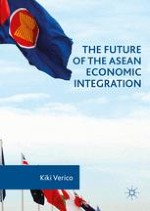2017 | OriginalPaper | Chapter
4. The Impact of the International Tripartite Rubber Organization (ITRO): Sub-Regional Level Analysis
Author : Kiki Verico
Published in: The Future of the ASEAN Economic Integration
Publisher: Palgrave Macmillan UK
Activate our intelligent search to find suitable subject content or patents.
Select sections of text to find matching patents with Artificial Intelligence. powered by
Select sections of text to find additional relevant content using AI-assisted search. powered by
